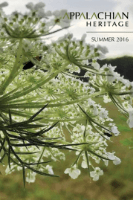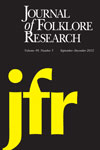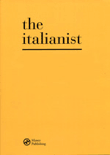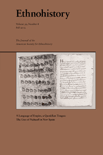
Folklor/Edebiyat-Folklore/Literature
Scope & Guideline
Connecting Disciplines: A Gateway to Folklore and Literary Studies
Introduction
Aims and Scopes
- Folklore Studies:
The journal emphasizes the documentation, analysis, and interpretation of folklore across different cultures, focusing on oral traditions, myths, legends, and rituals. - Literary Analysis:
It explores the relationship between folklore and literature, examining how traditional narratives inform and shape literary works, and vice versa. - Cultural Ecology and Social Context:
Research often integrates ecological perspectives and social contexts, analyzing how folklore and literature reflect and influence societal norms, values, and environmental issues. - Interdisciplinary Approaches:
The journal encourages interdisciplinary methodologies, incorporating insights from sociology, anthropology, history, and cultural studies to enrich folklore and literary analysis. - Gender and Identity Studies:
A significant focus on gender roles, identity formation, and representation in folklore and literature, addressing how these narratives construct and challenge societal views. - Cultural Heritage and Preservation:
The journal highlights the importance of cultural heritage, advocating for the preservation and revitalization of traditional practices and narratives in contemporary settings.
Trending and Emerging
- Ecocriticism and Environmental Narratives:
A rising trend in examining folklore and literature through ecocritical lenses, addressing environmental issues and the relationship between culture and nature. - Digital Folklore and Media Studies:
Increased interest in how folklore manifests in digital spaces, including social media and online communities, reflecting contemporary cultural dynamics. - Posthumanism and Non-Anthropocentric Perspectives:
Emerging themes that challenge anthropocentric views in literature and folklore, exploring connections between humans and non-human entities. - Migration and Transnational Narratives:
A growing focus on migration experiences and transnational identities in folklore and literature, reflecting global movements and cultural exchanges. - Interdisciplinary Cultural Studies:
An emphasis on integrating diverse academic disciplines, combining folklore studies with sociology, anthropology, psychology, and cultural theory to provide richer analyses. - Critical Gender Studies:
An expanding body of work exploring gender identities and roles within folklore and literature, emphasizing intersectionality and representation.
Declining or Waning
- Traditional Folklore Forms:
Research on conventional folklore forms such as folk songs, dances, and tales has diminished, possibly reflecting a shift towards contemporary or hybrid forms of cultural expression. - Historical Folklore Studies:
There appears to be a waning interest in purely historical analyses of folklore, as recent publications lean more towards contemporary issues and applications rather than historical contexts. - Regional Specificity:
Papers focusing on specific regional folklore traditions have decreased, suggesting a trend towards broader, more global analyses rather than localized studies. - Static Cultural Representations:
The exploration of folklore as static cultural representations has declined. There is a growing preference for dynamic interpretations that engage with evolving cultural practices. - Academic Formalism:
There is a noticeable decrease in works that adhere strictly to formalist literary criticism of folklore, with a shift towards more contextual and thematic analyses.
Similar Journals

Folklore-Electronic Journal of Folklore
Fostering Scholarly Exchange in Folklore StudiesFolklore-Electronic Journal of Folklore is a pioneering academic platform dedicated to the expansive field of folklore studies, published by the esteemed Estonian Literary Museum. With an ISSN of 1406-0957 and an E-ISSN of 1406-0949, this journal has established itself as a notable contributor to the scholarship on cultural expressions and traditions, particularly in the context of Estonia and beyond. Operating under an open access model, the journal aims to disseminate high-quality research that illuminates the rich tapestry of human folklore, mythology, and cultural practices across various societies. Recognized for its impact, it has been categorized in the Q3 quartile for Anthropology and Q2 for Cultural Studies in 2023, reflecting its relevance and rigorous academic standards. By ranking #436 out of 1304 in Cultural Studies and #267 out of 502 in Anthropology according to Scopus, the journal serves as a vital resource for researchers, professionals, and students interested in the interplay between folklore and contemporary societal issues. Overall, the Folklore-Electronic Journal of Folklore not only promotes scholarly exchange but also invites contributions that push the boundaries of traditional folklore research.

Appalachian Heritage-A Literary Quarterly of the Southern Appalachians
Illuminating the Literary Gems of the Southern AppalachiansAppalachian Heritage is a distinguished literary quarterly dedicated to exploring the rich cultural tapestry of the Southern Appalachians, published by the University of North Carolina Press. With a focus on literature, folklore, and the arts, this journal serves as a vital platform for scholars, writers, and enthusiasts alike. Through its thoughtfully curated content, Appalachian Heritage not only celebrates the unique voices and stories of this region but also contributes to a broader understanding of Appalachian identity within the greater context of American literature. While the journal operates under traditional access models, its editorial commitment to quality and cultural relevance ensures that it remains an essential resource for those seeking to delve into the literary heritage of the Southern Appalachians. The journal features a blend of academic articles, creative works, and critical essays that engage with themes of place, memory, and community, making it a must-read for anyone invested in the intersection of literature and culture.

Sibirskii Filologicheskii Zhurnal
Elevating Scholarly Discourse in Russian PhilologySibirskii Filologicheskii Zhurnal is a prestigious academic journal published by the Russian Academy of Sciences, Institute of Cytology and Genetics. With ISSN 1813-7083, it is dedicated to advancing research in the fields of Cultural Studies, Linguistics and Language, and Literature and Literary Theory, and has achieved notable rankings, including Q2 in Cultural Studies and Linguistics, and Q1 in Literature for 2023. The journal provides a platform for scholarly discourse, contributing valuable insights to its fields with an evolving scope that spans from 2018 to 2024. Though not an open-access journal, Sibirskii Filologicheskii Zhurnal serves as a vital resource for researchers, professionals, and students in the Russian Federation and beyond, fostering a deeper understanding of linguistic and literary phenomena. Its commitment to high-quality content makes it an essential addition to any academic's library.

Rusin
Navigating Complex Histories and Evolving LanguagesRusin is a distinguished academic journal published by ASSOC RUS in Moldova, playing a pivotal role in the multidisciplinary landscape of the humanities and social sciences. With an ISSN of 1857-2685 and an E-ISSN of 2345-1149, this journal has been circulating since 2011, amassing a significant reputation by 2023 as evidenced by its prestigious quartile rankings: Q2 in Anthropology, Q1 in History, Q2 in Linguistics and Language, Q1 in Literature and Literary Theory, and Q3 in Sociology and Political Science. The journal boasts remarkable Scopus rankings, including an impressive rank of #145 in Literature and Literary Theory, placing it in the 86th percentile among its peers. Although currently not open access, Rusin serves as an essential platform for researchers, professionals, and students, aiming to further the understanding of complex cultural and historical narratives, language evolution, and sociopolitical dynamics. As an informative resource, it fosters critical dialogue and interdisciplinary collaboration, solidifying its importance in the publishing realm within the humanities and social sciences.

Revista de Etnografie si Folclor-Journal of Ethnography and Folklore
Exploring Cultural Narratives, Unveiling Ethnographic InsightsRevista de Etnografie si Folclor-Journal of Ethnography and Folklore, an esteemed publication by EDITURA ACAD ROMANE, serves as a vital platform for the dissemination of research and scholarship in the fields of anthropology and cultural studies. Established in Romania, this journal has committed itself to exploring the rich tapestry of ethnographic practices and folklore traditions, favoring interdisciplinary approaches that illuminate the diverse cultural heritage of societies. With an ISSN of 0034-8198, the journal has been instrumental in fostering academic dialogue and engaging researchers, professionals, and students alike. Though currently classified in the Q4 category of both anthropology and cultural studies, its continued growth from 2014 to 2024 signals an evolving contribution to understanding cultural dynamics. Accessible via traditional publication means, the journal encourages contributions that deepen the understanding of ethnographic methodologies and cultural narratives, thereby enriching the academic landscape.

JOURNAL OF FOLKLORE RESEARCH
Bridging Past and Present Through Cultural DiscourseJOURNAL OF FOLKLORE RESEARCH, published by Indiana University Press, serves as a vital platform for scholarly exploration within the realms of folklore, cultural studies, and music. With an ISSN of 0737-7037 and an E-ISSN of 1543-0413, this journal has converged its content from 2002 to 2024, facilitating a dynamic discourse on the interplay of traditional narratives and contemporary cultural forms. Despite its current tier in the Q4 category for both Cultural Studies and Music, the journal is increasingly recognized for its contributions, ranking 69th in Music and 526th in Cultural Studies as per the latest Scopus metrics. Researchers, professionals, and students alike will find this journal an essential resource, rich with insights that traverse the complexities of human expression and societal narratives. Although not an open-access journal, the valuable research contained within its pages is crucial for advancing knowledge in folklore scholarship and its related disciplines.

SCHWEIZERISCHES ARCHIV FUR VOLKSKUNDE
Unveiling the Depths of Anthropology and FolkloreSCHWEIZERISCHES ARCHIV FUR VOLKSKUNDE, with ISSN 0036-794X, is a vital resource for scholars and practitioners in the fields of Arts and Humanities and Cultural Studies. Published by G KREBS VERLAGSBUCHHANDLUNG AG in Switzerland, this journal plays a crucial role in advancing the discourse surrounding folk culture, traditions, and anthropology. Despite its current ranking in the Q4 category for both Arts and Humanities and Cultural Studies, the journal serves as an essential platform for disseminating unique research findings and insights, contributing to a well-rounded understanding of diverse cultural practices. Researchers, professionals, and students are encouraged to explore the rich content produced between 2008 and 2014, and from 2017 to 2023, which reflects a commitment to fostering a multidisciplinary approach to folklore studies. By addressing the complexities of cultural dynamics, the journal not only promotes scholarly engagement but also enriches the academic community’s appreciation of folk traditions.

Italianist
Fostering Critical Discourse in Italian Anthropology and HistoryItalianist is a distinguished peer-reviewed journal published by Routledge Journals, Taylor & Francis Ltd, focusing on the multifaceted aspects of Italian culture, history, and anthropology. With a proud history spanning from 1981 to 2001 and then again from 2003 to 2024, this journal caters to a global audience of scholars, professionals, and students seeking to deepen their understanding of Italian studies. Although it currently operates without an open access option, it provides invaluable insights that contribute to critical discourse in the field, evidenced by its rankings in Scopus: Q4 in Anthropology and Q3 in History, demonstrating its growing influence among academics. The journal is based in the United Kingdom and strives to promote high-quality research that explores historical narratives, cultural practices, and anthropological themes related to Italy, making it an essential resource for anyone interested in this rich and vibrant area of study.

ETHNOHISTORY
Preserving Diverse Histories for Future GenerationsETHNOHISTORY is a prestigious academic journal published by DUKE UNIVERSITY PRESS, focusing on the interdisciplinary study of historical and anthropological methodologies. With its ISSN 0014-1801 and E-ISSN 1527-5477, the journal has made significant contributions to understanding the complex intersections of culture, history, and social dynamics since its inception in 1970. It holds a Q3 ranking in Anthropology and a Q2 ranking in History, reflecting its relevance in contemporary scholarly discourse, and boasts impressive Scopus rankings, placing it in the 77th percentile in History and the 45th percentile in Anthropology. While it does not operate under an Open Access model, the journal remains vital for researchers seeking comprehensive scholarly insights into the ethnographic historical record. The objective of ETHNOHISTORY is to foster dialogue among historians and anthropologists, ensuring the voices of marginalized communities and overlooked narratives are preserved and acknowledged in historical analyses. Researchers, professionals, and students will find invaluable resources and rigorous scholarship that provoke thought and inspire further exploration in the fields of history and anthropology at ETHNOHISTORY.

Quiroga-Revista de Patrimonio Iberoamericano
Connecting Cultures: Preserving the Past, Inspiring the FutureQuiroga-Revista de Patrimonio Iberoamericano, published by UNIV GRANADA, is a distinguished open-access journal dedicated to the fields of conservation, museology, and the visual and performing arts. Since its inception in 2012, the journal has provided a platform for scholars and practitioners to disseminate innovative research and critical discussions pertinent to Ibero-American heritage. With a growing impact, evidenced by its category quartiles ranking—Q3 in Conservation and Q2 in both Museology and Visual Arts and Performing Arts—as well as its Scopus rankings, Quiroga serves as an essential resource for researchers, professionals, and students who engage with the complexities of cultural preservation and artistic expression. The journal’s commitment to open access ensures the widespread availability of knowledge, fostering academic dialogue and collaboration within the global community. For inquiries, the journal can be reached at their offices located in Granada, Spain.